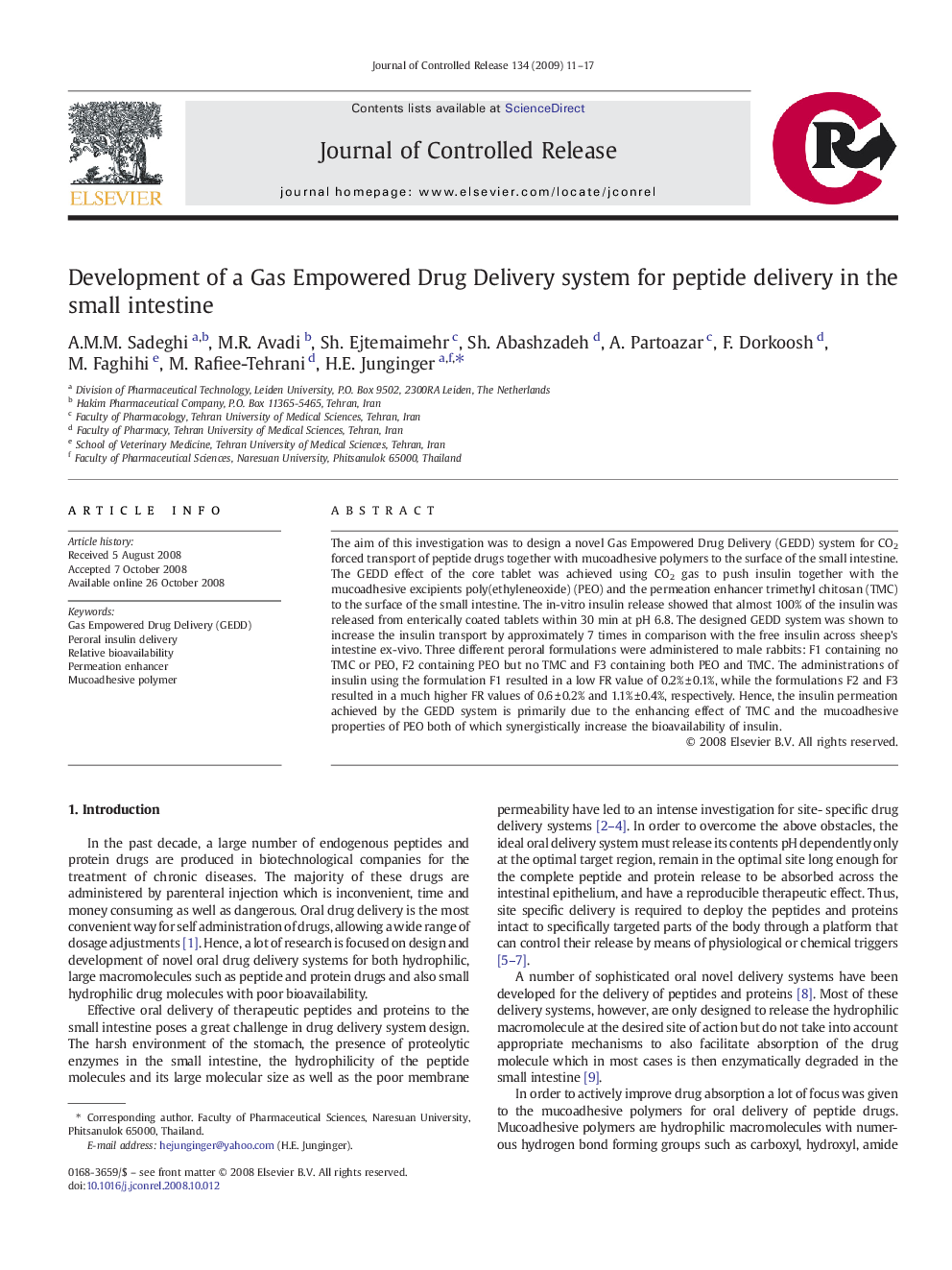| Article ID | Journal | Published Year | Pages | File Type |
|---|---|---|---|---|
| 1426195 | Journal of Controlled Release | 2009 | 7 Pages |
The aim of this investigation was to design a novel Gas Empowered Drug Delivery (GEDD) system for CO2 forced transport of peptide drugs together with mucoadhesive polymers to the surface of the small intestine. The GEDD effect of the core tablet was achieved using CO2 gas to push insulin together with the mucoadhesive excipients poly(ethyleneoxide) (PEO) and the permeation enhancer trimethyl chitosan (TMC) to the surface of the small intestine. The in-vitro insulin release showed that almost 100% of the insulin was released from enterically coated tablets within 30 min at pH 6.8. The designed GEDD system was shown to increase the insulin transport by approximately 7 times in comparison with the free insulin across sheep's intestine ex-vivo. Three different peroral formulations were administered to male rabbits: F1 containing no TMC or PEO, F2 containing PEO but no TMC and F3 containing both PEO and TMC. The administrations of insulin using the formulation F1 resulted in a low FR value of 0.2% ± 0.1%, while the formulations F2 and F3 resulted in a much higher FR values of 0.6 ± 0.2% and 1.1% ± 0.4%, respectively. Hence, the insulin permeation achieved by the GEDD system is primarily due to the enhancing effect of TMC and the mucoadhesive properties of PEO both of which synergistically increase the bioavailability of insulin.
